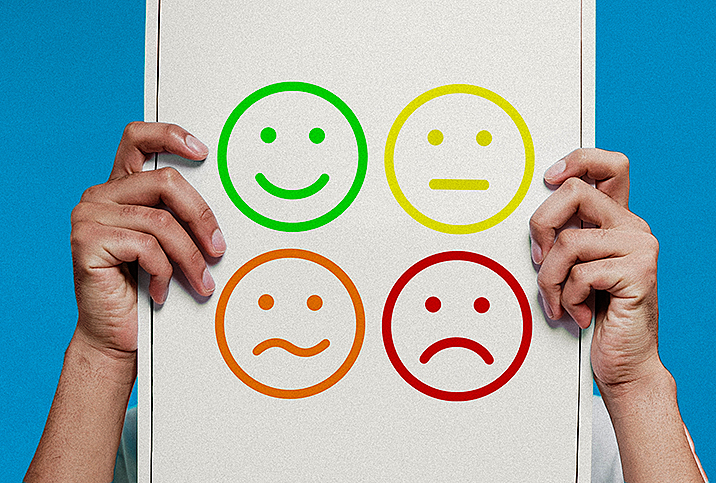Set Healthy Boundaries and Maintain Your Sense of Self

If boundaries and how to set them are a new concept to you, think of them as ways to delineate where you end and another person begins. They can be set in any sort of relationship: romantic, platonic, familial, work, and even with acquaintances or strangers. Without clear boundaries, people are more likely to push your limits, try to control your actions or disrespect you.
Setting boundaries can feel like a laborious task, but doing so sets you up for a happier and emotionally healthier life.
What are boundaries?
Boundaries are an important way to maintain your sense of self, which is a building block in a healthy relationship. But misconceptions and misunderstandings about what constitutes a boundary are common.
Simply put, a boundary is a limit you set in order to take care of yourself. The key here is that boundaries are limits you set for your own behavior—not for another person's.
For example, if work-life balance is important to you, you could set a boundary of not taking work calls on the weekend. If you don't like being touched by strangers, you may express to new people that you prefer not to hug or be hugged. If quality time is your love language, you could let a partner know you can't continue a relationship with someone who is unable or unwilling to give you that time.
Boundaries can exist in many aspects of life and can be set in any of the following areas:
- Physical
- Mental
- Emotional
- Financial
- Moral
- Sexual
- Spiritual
What isn't a boundary?
Unfortunately, people routinely mistake other concepts for setting boundaries, sometimes to detrimental effect. Rules are the most common concept mistaken for boundaries. The difference between a rule and a boundary is that a rule attempts to control the behavior of others while a boundary, as previously mentioned, outlines the behavior of the person setting it.
A rule directed at another person may be something like, "You're not allowed to hang out with friends after work." Rules can border on controlling behavior and may ultimately lead to conflict, especially since people generally don't want to feel like they're being told what to do. Rules may also only address the symptoms of a problem rather than the root cause. If you feel tempted to make a rule, it's worth digging down into the core of that feeling to see if you can create a corresponding boundary instead.
While nothing is inherently wrong with rules, they often come from a place of wanting to control another person's behavior. When individuals co-opt the term "boundaries" for controlling or coercive behavior, they can cause harm to the people around them. By labeling their behavior as boundary-setting, they attempt to give themselves a "free pass." Therefore, having a strong concept of what constitutes a boundary can help protect you from individuals who may have less-than-stellar motives.
How to define & set a boundary
If you aren't sure what your boundaries are, start small. First, make a list of your personal rights. If you have low self-esteem, even this may feel difficult, but everyone has personal rights that should not be infringed upon.
Next, think about your personal values, or the guiding principles in your life. What ideas are important to you and help determine your behaviors and goals?
Finally, take time to listen to your body. If your reaction to someone's behavior is to feel tense or upset, it may mean a boundary needs to be set.
Once you have identified a boundary, you must set it. One helpful concept during this process is to use "I" statements. By using the word "I" as the subject of a statement, the speaker/boundary-setter takes ownership of their emotions, rather than placing blame on the listener.
A personal boundary may sound like this: "I feel uncomfortable when you make comments about my weight. If you can't stop, I'm going to walk away." Here, the focus is on how the person setting the limit can protect themselves and what actions they can take to enforce their own boundary. They aren't setting a rule about comments on their weight, but simply communicating what actions they will take if the boundary is crossed.
Empowerment through boundaries
Setting boundaries can be scary if it's something new for you, but doing so can lead to a multitude of benefits. Since defining boundaries inherently involves some level of self-reflection, setting these standards can help you connect to yourself and your needs.
Furthermore, learning how to set boundaries can help you become more aware of others' boundaries, which will create stronger relationships and allow you to be more compassionate toward the people in your life. By knowing and upholding your boundaries, you can ultimately become a happier, more empowered person.

















